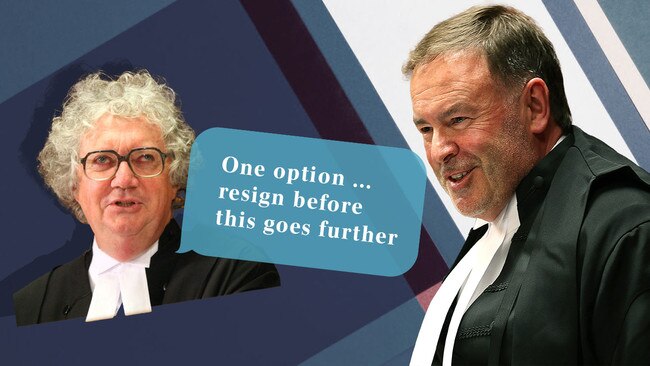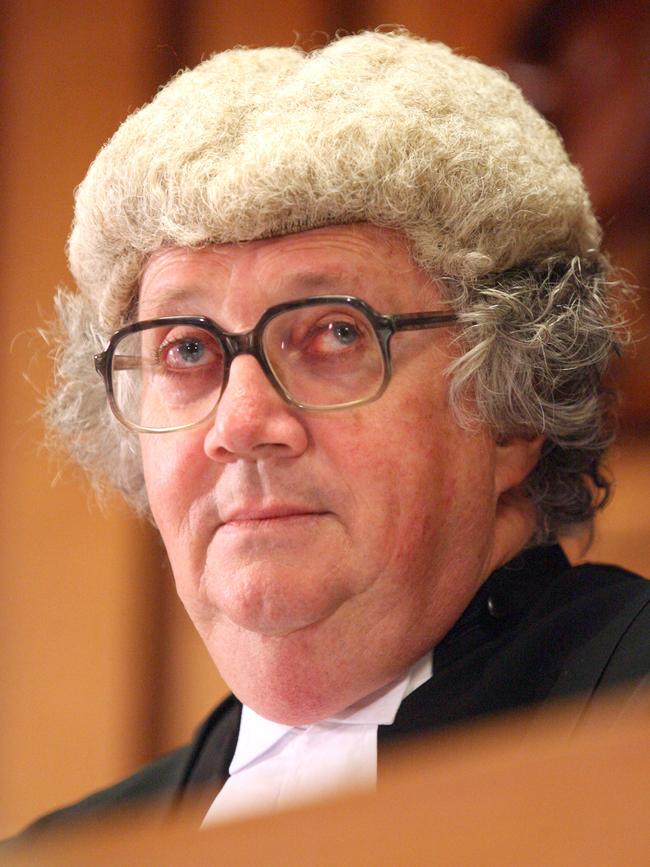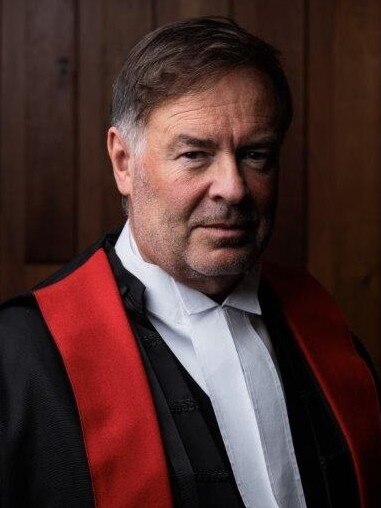Tasmania government moves to suspend judge Gregory Geason
The Tasmanian government is set to shelve legislation aimed at suspending or sacking Judge Gregory Geason and will move to suspend him via parliamentary motion.

The Tasmanian government is set to shelve legislation aimed at suspending or sacking an accused judge and will instead move to suspend him via parliamentary motion.
Sources have told The Australian that the legislation to set up a commission of inquiry into Justice Gregory Geason will be put on hold and a section giving the Attorney-General power to suspend the judge removed.
This follows widespread concern among independent MPs that the bill breaches the principle of the separation of powers between the judiciary and executive government and could interfere with criminal proceedings.
Instead, it is understood the government will in a special sitting on Tuesday move parliamentary motions to suspend Justice Geason, who has pleaded not guilty to one charge of assault and one of emotional abuse.
The government has been contacted for comment.
Chief Justice’s secret SMS to judge ignites scandal
Tasmania’s Chief Justice had suggested Judge Geason could resign to stop a parliament-led disciplinary process “going further”, in an act described by several lawyers as “grossly inappropriate”.
Chief Justice Alan Blow on Tuesday morning texted Justice Geason, who had days earlier pleaded not guilty to one charge of assault and one charge of emotional abuse.
In the text, verified by The Australian with sources close to Justice Geason, Justice Blow tells the judge: “The Attorney-General (Guy Barnett) has spoken to me again. It is planned that at 2pm the governor will announce that she is recalling parliament next Tuesday to consider a bill for the establishment of a commission to consider your removal or suspension.
“One option would be for you to resign before this goes further.”
Sources close to Justice Geason, 62, confirmed he had received such a text from the Chief Justice on Tuesday morning.
Justice Geason did not resign and the parliament recall and commission of inquiry process were announced that afternoon.
Chief Justice Blow declined to answer questions about the SMS and concerns about its appropriateness, and about whether the resignation suggestion was made at the request of Mr Barnett.
“The Chief Justice has advised that he does not wish to comment on this matter,” a spokeswoman said.
Mr Barnett declined to respond to questions about his level of involvement or otherwise in Chief Justice Blow’s resignation suggestion, concerns about its appropriateness, or whether he had confidence in the Chief Justice’s handling of the issue. “Conversations between the Chief Justice and Justice Geason are a matter for them,” a spokesman said.
Several lawyers expressed serious concerns about the SMS. Hobart- and Melbourne-based lawyer Dinesh Loganathan said it would be “grossly inappropriate” for anyone to pressure Justice Geason to resign, especially since he had pleaded not guilty and was not hearing cases.
“Putting pressure on a judicial officer to resign is in itself inappropriate,” Mr Loganathan told The Australian.
“It is undermining the impartiality and independence of judicial officers. If the pressure is being put on by members of parliament, it is clearly influencing judicial independence.”
Backed by several lawyers who were unwilling to speak publicly for fear of repercussions, Mr Loganathan said any such pressure would breach the separation of powers between the judiciary and executive government.


It would also undermine the principle of presumption of innocence until proven guilty, he said. “So what if he’s been charged – it’s not a case where he’s been found or proven guilty,” he said. “What is the need for him to resign?
“We’ve seen the Bruce Lehrmann trial and accusations of improper conduct by the DPP, and we’ve had (former Tasmanian DPP) Tim Ellis charged with negligent driving causing death. Neither of them were forced to resign.
“They were put on administrative leave until the court processes or investigations came up with some sort of finding.”
Mr Loganathan and other lawyers expressed concern about a precedent being established that could undermine judicial independence from the executive. “We can’t be setting a precedent where pressure is being applied to judicial officers to resign,” he said.
A witness has told The Australian they heard a telephone call between Chief Justice Blow and Justice Geason on November 3. At that point, Justice Geason had not been charged but was the subject of a family violence order.
The witness, who took contemporaneous notes of the conversation, said Chief Justice Blow had a “bellowing” phone voice and could be “clearly” heard saying words to the effect of: “I’ve spoken to the AG and he wants to be on the front foot … He has said – and I agree with him – that you should stand down.”
Justice Geason was visibly upset and appalled, the witness said, that the Chief Justice appeared to be acting in step with the Attorney-General and had disregarded the presumption of innocence. Chief Justice Blow is yet to respond to the witness’s account.
Lawyers for Justice Geason declined to comment.



